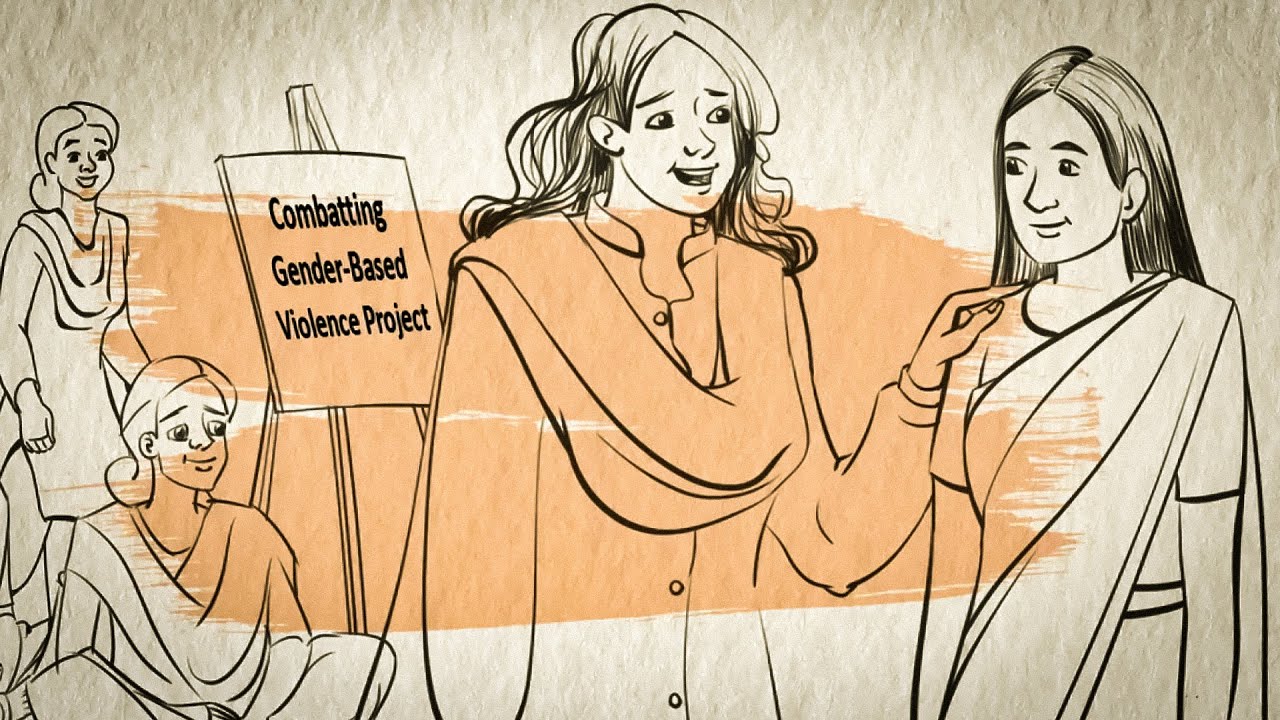UN Women's prevention project helps make women and girls in Bangladesh safer from violence
Date:
Author: Shararat Islam
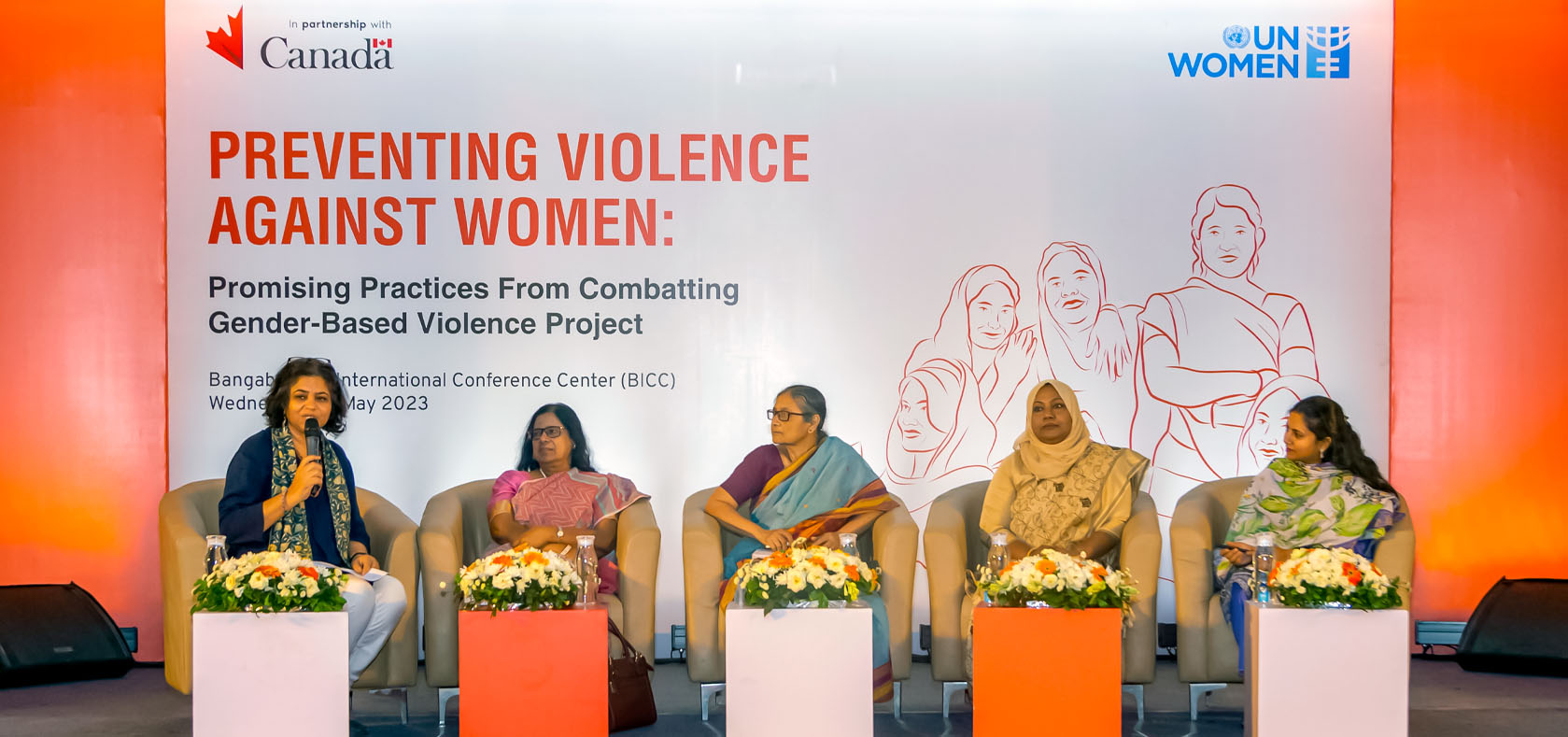
Dhaka, Bangladesh – UN Women has wrapped up a five-year primary prevention project that helped bring about significant reforms in the law and social institutions in order to prevent violence against women and girls in Bangladesh.
UN Women and civil society organizations jointly implemented the project, Combatting Gender-Based Violence, in collaboration with public and private institutions in three districts: Bogura, Comilla and Patuakhali. The Government of Canada provided funding.
“Prevention works. We need to scale up investments in prevention efforts. The time for transformative action by all of us is NOW – no one can remain a bystander. UN Women stands ready to work with the Ministry of Women and Children Affairs., civil society partners and the Government of Canada to advance prevention efforts,” said Gitanjali Singh, Country Representative, UN Women in her opening remarks.
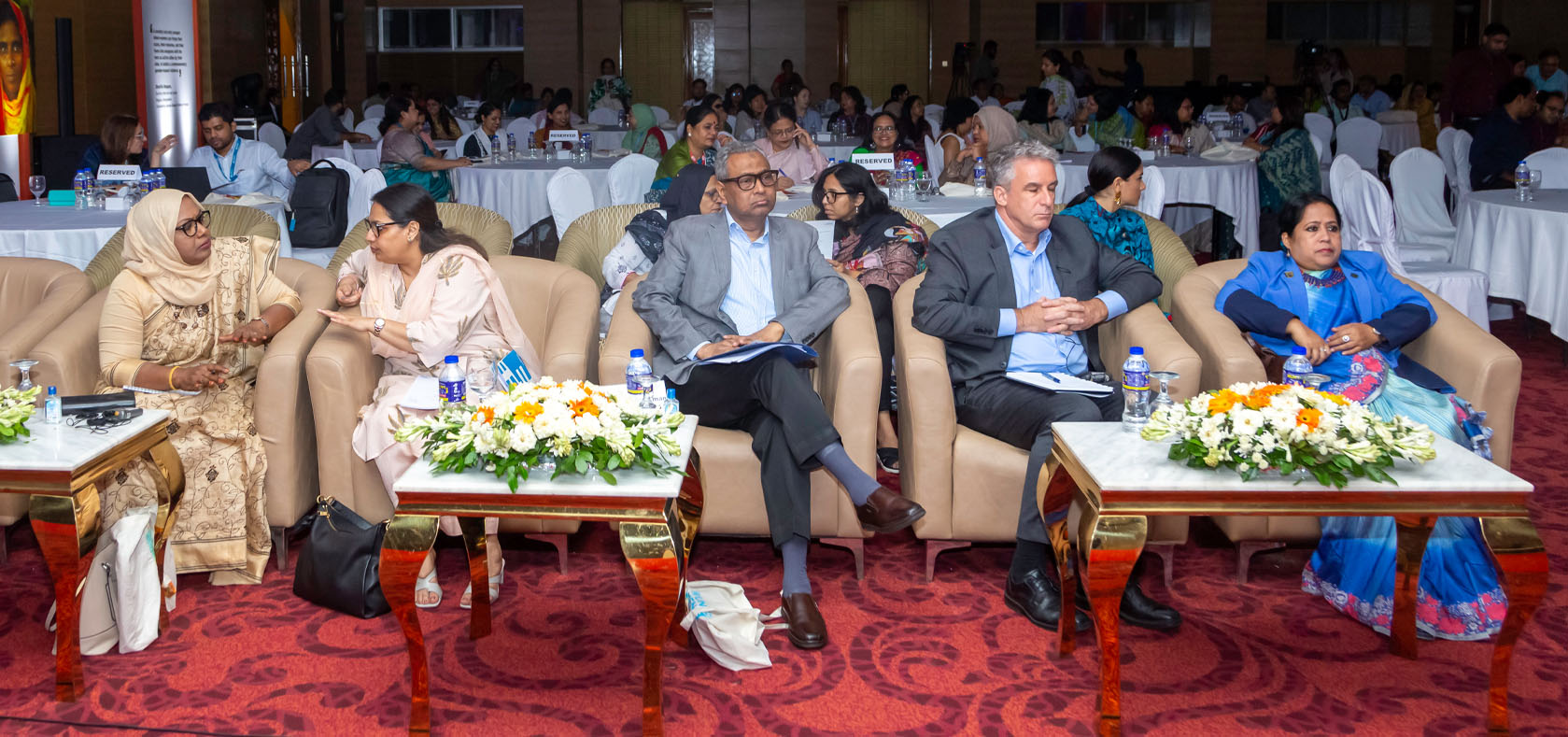
Representatives from the Government, development partners and United Nations agencies, human rights and civil society organizations, women's rights activists, and the media attended the project’s closing event on 10 May 2023 in Dhaka.
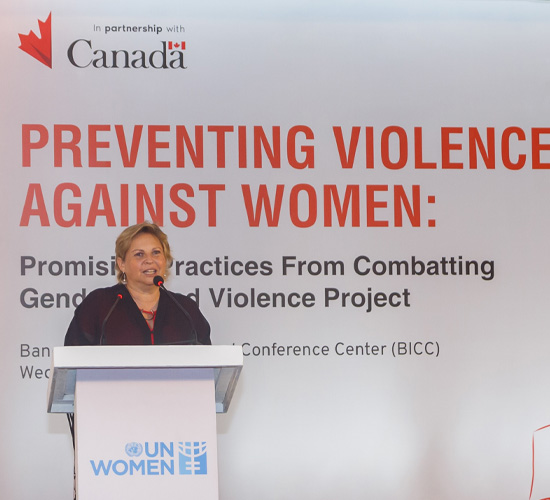
“It is imperative to work holistically, work in a coalition, work in an intersectional way, and involve people of all gender and beliefs to end violence against women and girls,” said Lilly Nicholls, High Commissioner of Canada to Bangladesh, at the event.
The event highlighted the main achievements the project helped bring about, including:
- the Evidence (Amendment) Act 2022, which prohibits questioning the character of survivors of rape during cross-examination in rape related trials and allows the submission of digital evidence in court
- the introduction of a Zero Tolerance to Sexual Harassment policy in 12 public and private workplaces
- the establishment of a total of 93 committees in compliance with the High Court Directive of 2009, to take complaints of sexual harassment in educational, governmental and non-governmental institutions.
- engagement with 9,106 people from local government, educational institutions, the Chamber of Commerce and Industry, factories, and the transport sector through advocacy, trainings, orientations, and campaigns on preventing violence against women
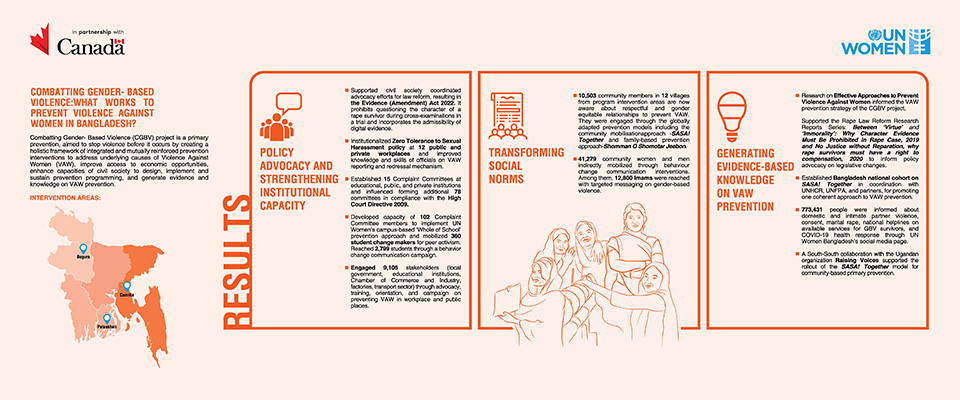
“It is very important to involve men on this issue, which would make them more aware of the situation and how they should act,” said Md. Muhibuzzaman, Additional Secretary, Ministry of Women and Children Affairs.
During a panel discussion on how grass-roots people have worked to prevent violence against women, a community leader, Ayesha Akhter, said: “I used to ignore the conflicts of neighbouring families before. But after receiving multiple training sessions with [the] project, I wanted to make a change. I started going to my neighbours’ houses and convinced them to take action against any kind of violence they faced.”
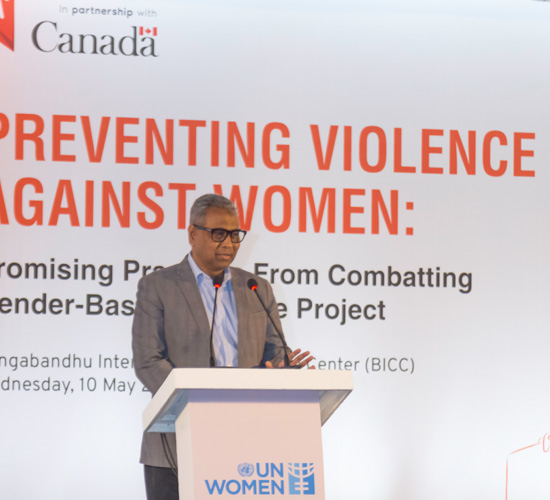
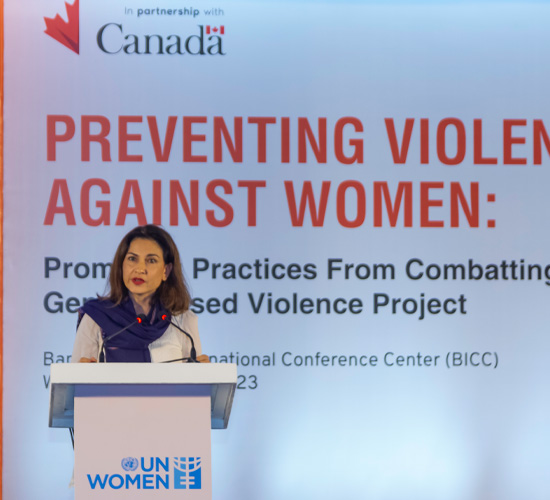
Another panelist, Md. Rafiuzzaman Rafi, a student, told of how he stood up against a teacher who had committed violence against a female student at his educational institution.
Another panel comprising officials of the police, academia, law reform and women’s rights groups acknowledged UN Women's support in strengthening institutions and changing social norms but said that violence against women remains serious and requires addressing deep-rooted patriarchy and social stigma.
Sultana Kamal, a human rights activist and former advisor to the caretaker Government said: “It is important to change our mindset and outlook towards women to reduce violence against them and give them an equal ground to progress. We have to create a culture of good humanity, and only then will we be able to eliminate violence against women.”
In closing the event, Melissa Alvarado, UN Women regional programme specialist on ending violence against women, stressed the need to continue working on personal, political and institutional levels and the importance of collaboration of civil society with governments, non-profits and other institutions.
“We cannot leave the duty of gender equality to future generations,” she said. “It should be within us. We should do it now!”
